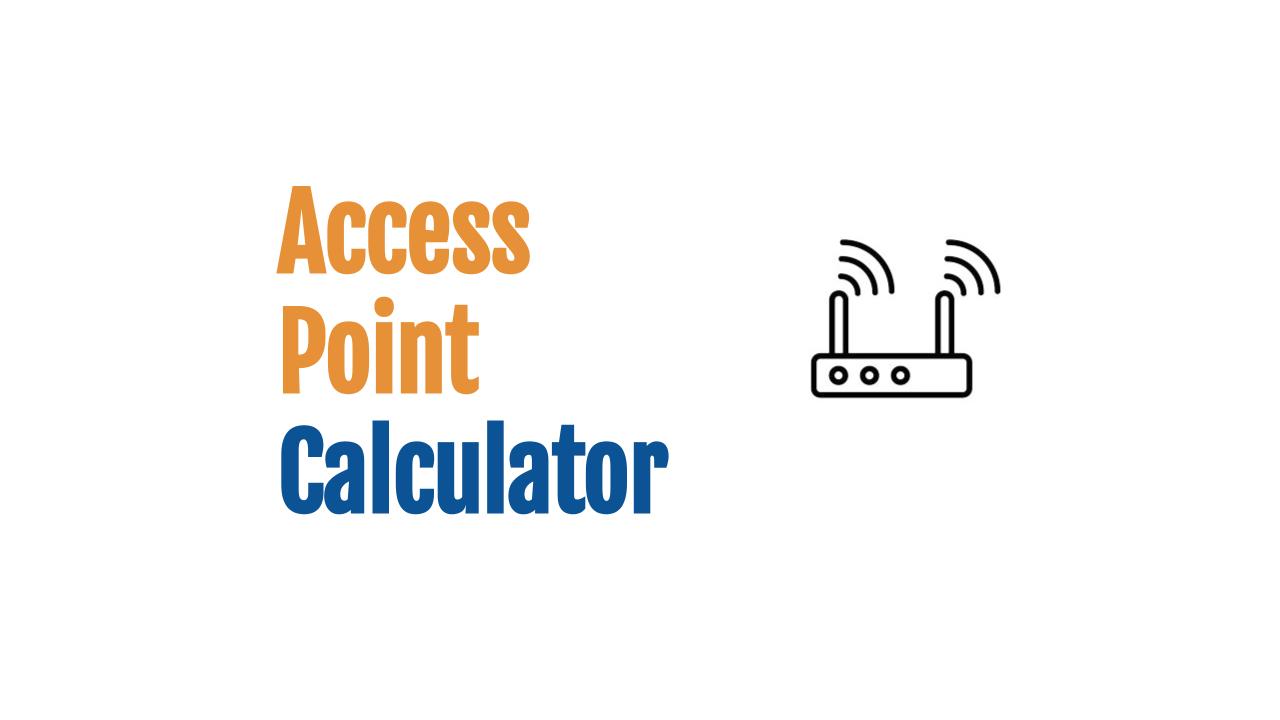Use this tool to calculate the number of Wi-Fi access points required for a given area (specified in sq feet). It can be used to design a Wi-Fi network and get a sense of how many access points are required.
Calculator
Enter
- Area over which coverage is desired (in square feet)
- Wi-Fi Range (default range is 33 feet indoors for good coverage)
- Wi-Fi speed (depends on the technology – 500 Mbps is the average for 802.11ac)
- Number of users or client devices
- Average bandwidth requirement per user (in Mbps)
The Wi-Fi AP range (explained below) of 33 feet is the max distance at which the RSSI is a good value.
🛜 Example Calculation
For the following parameters:
- Coverage area = 5,000 feet
- 500 Mbps Wi-Fi
- 4 Mbps continuous download requirement
- 75 client devices
A total of 3 AP’s are required
For
- Coverage area = 50,000 feet
- 500 Mbps Wi-Fi
- 4 Mbps continuous download requirement
- 75 client devices
A total of 15 AP’s are required
In the event of an overloaded AP, adding another AP would provide a better user experience. Read on to understand the limits on client devices and other details that explain the calculation above.
How are the numbers calculated?
The number of Access points required depends on the factors listed below
Received Signal Strength Indicator (RSSI)
At least -65 dBm RSSI is required for a good signal. Using the Wi-Fi range calculator we can see that with an average of one wall between the AP and client device, the maximum range is approximately 33 feet. Use this number to calculate a max coverage area of 3421 square feet.
If the target RSSI is higher than -65 dBm, use the calculator to find the max distance (reduce the distance in the calculator and the dBm will be higher). The resulting max distance will be smaller. For instance at a distance of 1 foot, and one wall, the RSSI is -4 dBm.
Target throughput per user
The target throughput per user is specified in Megabit per second (Mbps). As a default we have estimated 4 Mbps (based on the bandwidth requirement for a video call). If your job requires you to be streaming all day that number can go up to a max of 16 Mbps.
Total Throughput per Access Point
In this post (for a single user) we presented some RSSI (dBm) to throughput measurements. At -65 dBm we were able to get 80 Mbps from a 802.11ac AP. When there are many users the speed will be lower.
As well, the distance really depends on the distance from the AP. When the distance is small, the RSSI is higher and the speed is faster. In fact we are able to achieve speeds of between 800 and 900 Mbps when the RSSI is -40 dBm at a distance of about 3 meters.
Estimate the total throughput at an average of 500 Mbps for a 802.11 ac AP based on the standard specification and what we are able to achieve practically with varying distances.
Client devices per Access Point
A single access point can support up to a max of 1024 clients*. However when the clients are actively consuming and uploading data, the number is far lower. We have estimated a maximum of 25 clients per radio.
*A client device is a laptop, phone or any other piece of hardware that uses Wi-Fi.
